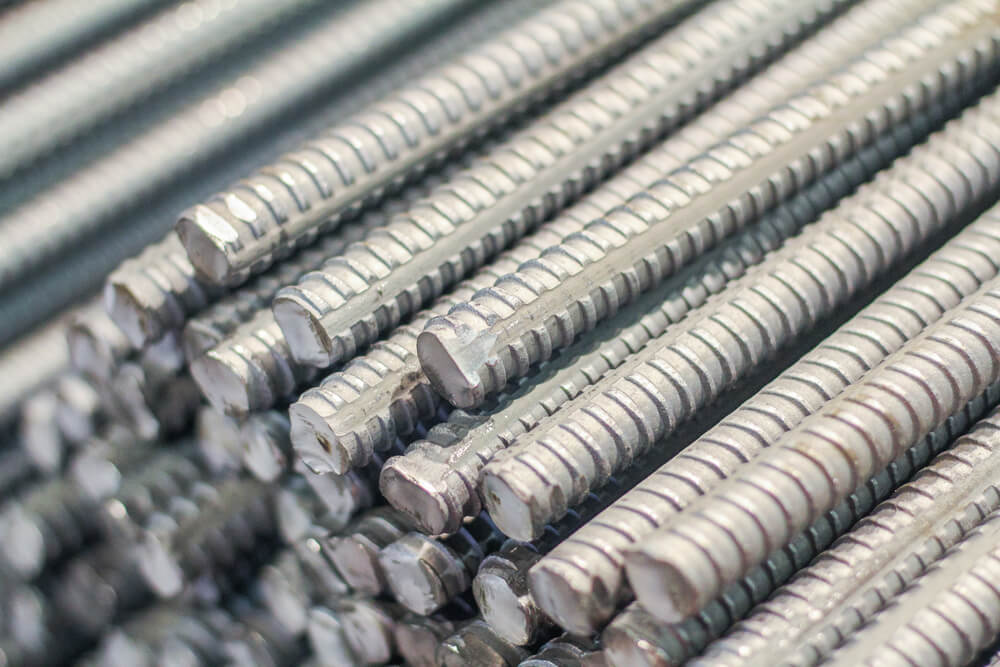Steel Rebar

Steel Rebar
Rebar is used to increase the tensile strength of a structure, most commonly for concrete reinforcement. This is because concrete has a very high compression strength, but lacks torsional or tensile strength to withstand other forces. There are a number of different styles and grades that rebar can come in, from carbon steel and ribbed to smooth fiberglass.
Rebar for Sale and Ready-to-Ship
Wondering where to buy rebar? Service Steel Warehouse is your go-to steel rebar supplier. We stock a variety of ready-to-ship steel rebar sizes from #3 to #10, in grades A615GR60 and A706 weldable. We also offer full-service processing capabilities, such as cutting to length or galvanizing your rebar.
With locations throughout the Gulf Coast and Midwest, our warehouses can get you the steel rebars quickly and competitively priced. Fill out this form or call our team directly to get a fast and free quote for your next project.
Benefits of Steel RebarSteel rebar, or reinforcing bar, is commonly used in construction to provide additional reinforcement for concrete structures. Here are some of the additional benefits of using steel rebar:
|
Rebar ApplicationsRebar is primarily used in concrete and steel projects, such as:
|
Rebar Sizes
| Rebar Size | Weight (lbs/ft) | Diameter (in) | Lateral Area (in²) |
|---|---|---|---|
| #3 | 0.38 | 0.38 | 0.11 |
| #4 | 0.67 | 0.50 | 0.20 |
| #5 | 1.04 | 0.63 | 0.31 |
| #6 | 1.50 | 0.75 | 0.44 |
| #7 | 2.04 | 0.88 | 0.60 |
| #8 | 2.67 | 1.00 | 0.79 |
| #9 | 3.40 | 1.13 | 1.00 |
| #10 | 4.30 | 1.27 | 1.27 |
Steel Rebar FAQs
Rebar is short for “reinforcing bar” or “reinforcement bar,” depending on who you ask. This is because it consists of steel bars (or rods) that are primarily used in the reinforcement of concrete structures.
Typically made from carbon steel, rebar is one of the most eco-friendly steel products available as it’s made from up to 97% recycled scrap metal.
Rebar is typically made from varying grades of carbon steel, with higher grades indicating greater strength. The specific grade and composition of carbon steel used for rebar can vary, and different grades are designated by numbers that indicate their yield strength.
To make rebar, scrap metal goes into a furnace to be melted down and then it is shaped into billets. From there, the rebar metal is hot rolled into steel bars with ridges added to enhance the bond with concrete. The last step is to cool and cut the bars to length.
Due to the different variations in steel grades used for rebar, some are easier to weld than others. Low-alloy steel (or carbon steel) rebar is much better for welding than other grades, such as stainless steel. Our A706 steel rebar is specifically designed to be weldable, so request a quote today.
While strong in compression, concrete is relatively weak in tension and prone to cracking. When embedded in concrete, steel rebar helps address this weakness by absorbing tensile forces and preventing cracks from spreading through the concrete.
Rebar can have a wide range of prices based on size, rendered services, market conditions, and other factors.
For more detailed pricing on rebar please contact one of our representatives. Fill out the form or call our team directly to get a custom quote for your next project!